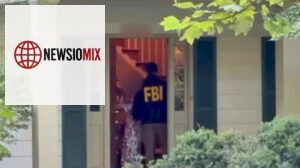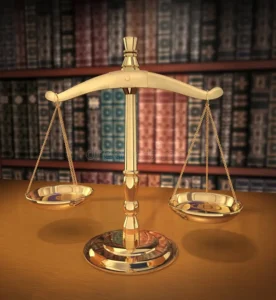Shocking Twist: FBI Raids John Bolton’s Home Over Classified Documents Scandal1
FBI Raids John Bolton’s Home in Classified Documents Probe

According to law enforcement officials, the raid was conducted at approximately 6:00 a.m. EDT at Bolton’s residence in Bethesda, Maryland. Agents spent over eight hours searching the property and reportedly seized multiple boxes of documents and electronic devices. The investigation centers on whether Bolton improperly retained classified materials after leaving the White House in 2019.
The Raid: What We Know
Sources within the Justice Department indicate that the raid was authorized after investigators developed evidence suggesting Bolton may have retained classified documents beyond those already identified in his controversial 2020 memoir, “The Room Where It Happened.” The book already sparked a legal battle over classified information when it was published.
“No one is above the law. This action demonstrates the Justice Department’s commitment to enforcing classification rules regardless of an individual’s position or political connections.”
Bolton’s attorney, Charles Cooper, issued a statement calling the raid “unnecessary and aggressive,” claiming that Bolton had been cooperating with investigators. Cooper asserted that any documents in Bolton’s possession were “inadvertently overlooked” during previous reviews.
Timeline of the Investigation
The Controversial Memoir That Started It All
Bolton’s 2020 memoir, “The Room Where It Happened,” provided a scathing insider account of his 17 months as President Trump’s third national security adviser. The book portrayed Trump as unfit for office and described numerous foreign policy decisions that Bolton argued were made for personal political gain rather than national security interests.
John Bolton

Bolton served as National Security Adviser from April 2018 to September 2019.
“The Room Where It Happened”

The controversial memoir sparked legal battles over classified information.
The Trump administration attempted to block the book’s publication, filing a lawsuit claiming it contained classified information that could compromise national security. A federal judge declined to issue an injunction, allowing the book to be published while noting that Bolton had “gambled with the national security of the United States.”
“I harden to the view that there is no adult in the Oval Office. What happens on the presidential Twitter account can’t be walked back. It’s out there forever.”
Legal Implications and Precedents
The raid on Bolton’s home comes amid heightened scrutiny over the handling of classified documents by current and former government officials. This case bears similarities to the investigation into former President Trump’s handling of classified materials at Mar-a-Lago, though there are significant differences in scale and context.
Potential Charges
Legal experts suggest that if prosecutors find evidence that Bolton knowingly retained classified documents and failed to return them when requested, he could face charges under the Espionage Act or other statutes governing handling of classified materials. However, proving criminal intent may be challenging.
Possible charges include:
- Unauthorized retention of national defense information (18 U.S.C. § 793(e))
- Conversion of government property (18 U.S.C. § 641)
- False statements to investigators (18 U.S.C. § 1001)
- Contempt of court related to the earlier book publication case
Political Reactions
The raid has sparked strong reactions across the political spectrum, with opinions often breaking along partisan lines:


“This is yet another example of the weaponization of the Justice Department. Where’s the similar zeal for investigating the Biden family’s foreign business dealings?”
“Classified information protections exist for a reason—to keep our country safe. Anyone who violates these protocols should be held accountable, regardless of their position.”
Broader Implications for National Security
The investigation into Bolton’s handling of classified materials raises important questions about the broader system for protecting state secrets. Experts note that the case highlights ongoing challenges in controlling classified information after officials leave government service.
Former intelligence officials point to systemic issues, including:
- Inadequate exit procedures for reviewing materials taken by departing officials
- Ambiguity about what constitutes personal records versus government documents
- Limited resources for tracking and recovering classified materials
- Political considerations that may influence enforcement decisions
What’s Next in the Investigation
Legal experts expect the investigation to proceed along several tracks:
FBI analysts will examine the materials seized during the raid to determine their classification level and sensitivity. This process could take weeks or months, depending on the volume of documents and the complexity of the classification issues.
Simultaneously, prosecutors are likely to continue presenting evidence to the grand jury that has been hearing the case. Witnesses may include current and former government officials who worked with Bolton, classification experts, and possibly the former president himself.
Bolton’s legal team is expected to challenge the search warrant and argue that any documents in his possession were not knowingly retained or did not contain classified information at the time they were removed from government custody.
Conclusion: A Test Case for Accountability
The FBI raid on John Bolton’s home represents a significant test of the Justice Department’s approach to investigating mishandling of classified information by high-level former officials. The case comes at a time when public trust in government handling of sensitive information is particularly low.
“This case will set important precedents for how classified information cases are handled going forward. The outcome could influence behavior across the national security community for years to come.”
As the investigation continues, it will undoubtedly fuel debates about the appropriate balance between government transparency and national security, the political dimensions of law enforcement decisions, and the accountability of those entrusted with the nation’s most sensitive secrets.
Share this content:






1 comment